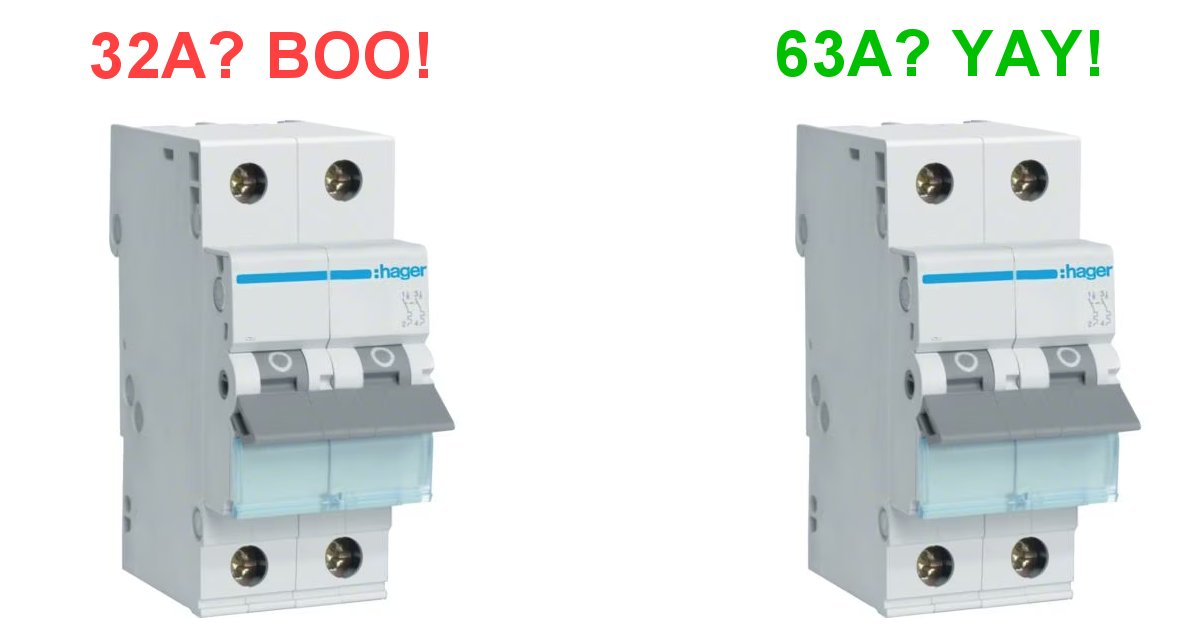Common sense has prevailed concerning a main switch circuit breaker rule in WA’s South West Interconnected System (SWIS) creating headaches for some households and businesses.
A new rule introduced in Western Australia last year required all new or altered electricity network connections to have a circuit breaker as the main switch. The mandated circuit breaker switch sizes were:
- Metro and major regional – 63A single phase, 32A 3-phase.
- Rural – 32A single phase, 32A 3-phase, 20A split-phase.
The issue for those in the bush with single phase connections is pretty obvious – they could face difficulties when using multiple high-powered appliances simultaneously, with the main switch circuit breaker potentially regularly tripping out. The requirement also acted as a disincentive for the installation of solar panels, home batteries and EV chargers in rural areas in particular, as these require the installation of a mains circuit breaker.
The rule was effectively penalising those driving the clean energy revolution.
SolarQuotes’ Kim Wainwright went into great detail regarding the problems of WA’s main switch circuit breaker rule here – and there were many comments from rather peeved folks following the post.
Positive Outcome From Review
It appears Western Power received a lot of flak about the situation and subsequently announced the rule would be reviewed. That review has been completed, and there’s good news.
On Wednesday, WA Energy Minister Bill Johnston announced there will be a standard connection service capacity of 63 amps for small-use, single-phase (240V) connections right across the South West Interconnected System. The change comes into effect from April 11, 2023.
For rural split-phase connections, capacity limits will be boosted from 20A to 32A per phase. Three-phase connection services remain unchanged at 32A per phase.
The changes follow a successful 24-week trial involved seven regional local government areas where installation of a 63-amp rated main switch circuit breaker was permitted for all new single-phase connections, or where an existing electrical installation was altered.
“We’ve listened to the community and sought advice on how we can best serve the power supply demands of Western Australians now and in the future,” said Minister Johnston. “The new standard demonstrates Western Power’s commitment to transforming the network to facilitate the growth of renewables and electrification.”
Further information on the changes and an FAQ can be viewed on Western Power’s web site.
Reimbursement Program
While the 32A requirement in rural areas should have never happened in the first place without a trial such as has since occurred, it could be considered all’s well that ends well. However, that will be little comfort for households currently stuck with a 32A main switch circuit breaker and juggling how they use electricity. Sure, they’ll be able to upgrade to 63A very soon – but that’s another expense.
There’s some good news there as well.
Customers who were compelled to have a 32A breaker installed and are experiencing frequent electricity tripping may be eligible to claim a reimbursement for an upgrade to 63A. The reimbursement is capped at $250 including GST. Further details on eligibility and how to claim can be found here.


 RSS - Posts
RSS - Posts



Well, isn’t it strange…. up in the northwest of W.A. Our M/Switches used to be only 80amps, now a standard 100 !
I feel for those who live elsewhere ….
# our beer & drinks, always remain cold ?